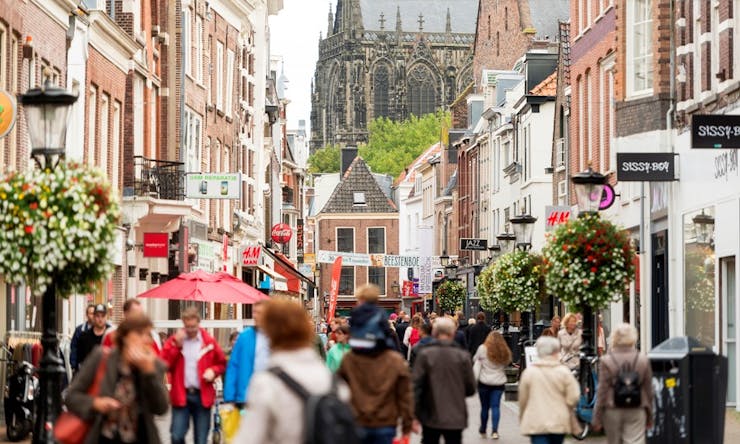Life is getting a little bit easier in Utrecht.
Forty years of cannabis policy in the Netherlands has led to a paradoxical, almost unworkable situation for coffeeshop operators: They are allowed to sell cannabis under strict conditions, but they cannot grow it or buy it wholesale. What's more, they can never legally have more than 500 grams in stock.
Going against national directives, however, the city of Utrecht has now doubled that amount.
Utrecht is one of the oldest Dutch cities and the fourth largest in the country, with some 330,000 inhabitants. Back in 1968, the very first cannabis coffeeshop, Sarasani, opened its doors here, on the city's main canal, Oudegracht (Old Canal). That's a full four years before the Amsterdam saw the opening of its first coffeeshop, teahouse Mellow Yellow, the brainchild of Wernard “Potfather” Bruining.
As has happened throughout the Netherlands, the number of coffeeshops in Utrecht has steadily declined since the turn of the century. In 1999 there were 20 — now there are only 10. But the tide is turning; in early July the city decided to ease the restrictions on coffeeshops in order to increase their number to 17. The aim is to reduce the illegal street sales of cannabis and other drugs as well as to alleviate traffic and crowds around existing coffeeshops. Local authorities have terminated the notorious “extinction policy” that made it impossible for coffeeshop owners to sell their business.
Another change that will make life a little easier for the Utrecht coffeeshops: The maximum allowable stock of cannabis will be raised from 500 grams to 1 kilo. This so-called stock rule forces coffeeshops to set up elaborate systems to replenish their stock, often multiple times a day. And every run puts the people moving cannabis from a secret stash location to the coffeeshop at risk of arrest or robbery. To make things even stranger, the same 500-gram limit applies to every coffeeshop, whether it's in the heart of Amsterdam or tucked away in a tiny provincial town. If the police find 501 grams, the shop likely to be closed for at least three months.
The change in policy means Utrecht is now going against the national directives. Coffeeshops with up to a kilogram of cannabis will only receive a warning. It's a step in the right direction, albeit a small one. The real problem remains the “backdoor paradox,” the fact that any production or wholesale of cannabis is still prohibited. That effectively leaves above-board coffeeshops at the mercy of the black market.
Utrecht is among a growing number of cities trying to persuade the national government to experiment with regulating cannabis production in order to supply coffeeshops. At the annual gathering of the Association of Dutch Municipalities (VNG) last June, almost 90 percent of all municipalities voted in favor of starting such programs. With national elections scheduled for March next year, it seems impossible for the next Dutch government to keep ignoring the calls for change.







